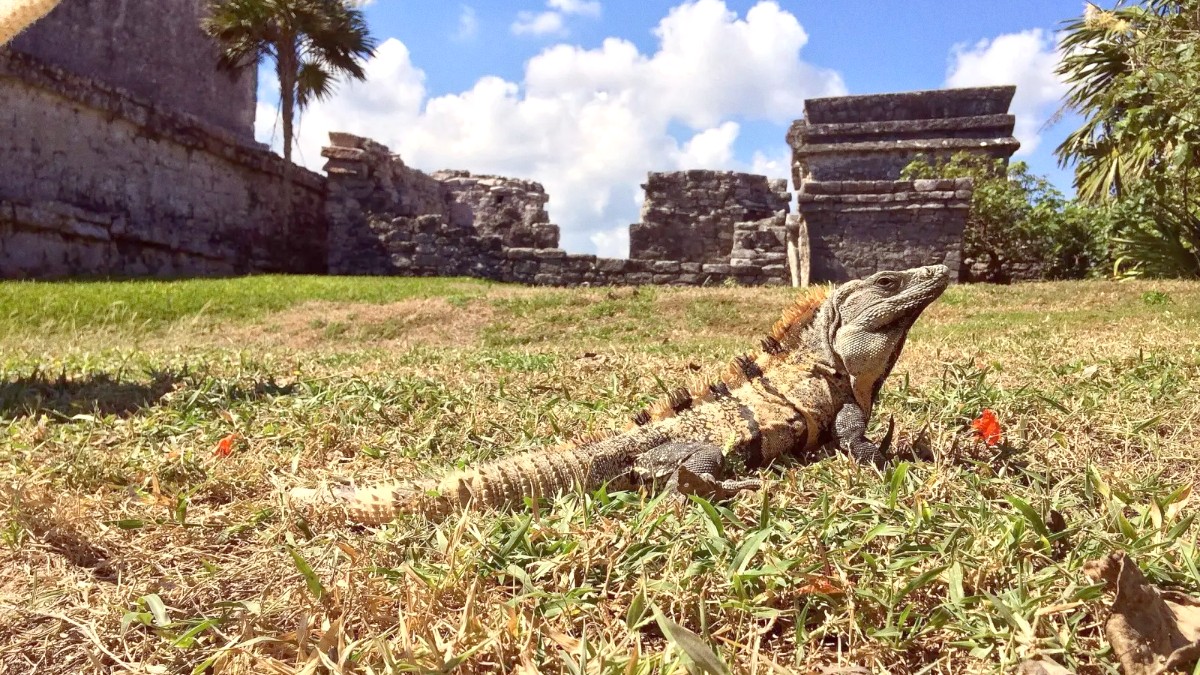
Central Gulf Coast, Mexico
Purchasing a local SIM card (a "chip") comes recommended for affordable calls, texts, and mobile data. Telcel generally has the widest coverage. You need your passport to register the SIM. Prepaid plans are good value. Wi-Fi is widely available in hotels, restaurants, cafes, and some public areas. Speeds generally impress in urban areas.
For constant connectivity without local SIM hassle, consider a portable Wi-Fi device. ESIMs also are a good option for digital-first travelers. Both alternatives reduce the need to find local stores or deal with physical SIM cards.
Correos de México manages postal services, though international mail may take time. Major international courier services like DHL, FedEx, and UPS hold offices for faster international shipping. Spanish is the official language. Staff in major hotels may speak some English, but less so among the general population.
Resources exist to help you learn common phrases for travel situations, from greetings to asking for directions or food. Even a small effort stands appreciated.
Learning and using "Por favor" (Please) and "Gracias" (Thank you) makes a difference in all interactions.
From connecting to the internet to how businesses operate, these practical insights streamline your travel experience. Cultural subtleties avoid unintentional missteps.
Generally open from 9:00/10:00 AM to 8:00/9:00 PM. Smaller, independent shops may close for a traditional "siesta" between 2:00 PM and 4:00 PM, reopening until evening. Larger chain stores and supermarkets usually operate continuously.
Hours vary. Breakfast places often open early (around 7:00 AM). Lunch restaurants typically start serving from 1:00 PM or 2:00 PM, as lunch is the main meal. Dinner service usually begins around 7:00 PM or 8:00 PM and can extend until 10:00 PM or later, especially on weekends.
Most museums and major attractions operate from approximately 10:00 AM to 5:00 PM. Many close on Mondays. Always confirm specific hours online or at the venue before your visit.
Banks generally open from 9:00 AM to 4:00 PM, Monday to Friday. Some larger bank branches may have limited Saturday morning hours. ATMs are widely available 24/7 at banks, shopping centers, and convenience stores.
Mexico observes numerous public holidays ("feriados"). On these days, banks, government offices, and some businesses may close or operate on reduced hours. Easter Week (Semana Santa) is a major holiday period, with many Mexicans traveling, leading to crowded attractions and higher prices. Some smaller businesses might close, while tourist-oriented businesses typically stay open but get busy.
This information empowers you with knowledge for a confident and comfortable visit, so you focus on adventure.
Respectful interaction with local culture guides responsible travel.
A polite "¡Hola!" or "¡Buenos días/tardes/noches!" (Good morning/afternoon/evening) is always appreciated when entering a shop or restaurant. A handshake is common for introductions.
Veracruz is generally casual due to its tropical climate. However, for formal occasions, upscale restaurants, or when visiting religious sites (churches), modest dress respects local custom.
Wait to be seated in most sit-down restaurants. Do not begin eating until everyone at your table receives their food or the host invites you. Keep your hands visible on the table during meals. Saying "¡Provecho!" (Enjoy your meal) to people eating as you pass by their table is common and polite. Refer to Section 2.3 for detailed tipping information.
Generally, taking photos in public spaces is acceptable. Always ask for permission ("¿Puedo tomar una foto?") before photographing individuals, specifically children, and respect their decision if they decline. Some museums or religious sites may prohibit flash photography or photography altogether; look for signs.
Veracruz's urban infrastructure is not always designed with high accessibility. Sidewalks may be uneven or narrow. Newer hotels and attractions typically have better access.
Accessibility for travelers with mobility challenges in Veracruz may vary. Planning ahead holds importance.
Veracruz's urban infrastructure is not designed with high accessibility as a main focus. Sidewalks may be uneven, narrow, or have obstacles. Historic buildings often lack ramps or elevators. Newer hotels, shopping centers, and modern attractions typically offer more accessible features.
The Veracruz Aquarium is generally accessible for wheelchairs. The Malecon promenade is flat and relatively easy to navigate. City buses are generally not wheelchair accessible. Taxis are an option, but vehicles may not suit wheelchairs. Ride-sharing services like Uber/DiDi might have options for larger vehicles.
Dedicated services for travelers with visual or hearing impairments are few. Apps and personal assistance are recommended tools. Some larger museums might offer audio guides or written information.
Research accessible travel guides or forums specific to Mexico. Contact hotels directly to confirm their accessibility features and ask about accessible rooms. For tours, inquire with tour operators about their ability to accommodate mobility needs. Traveling with a companion often proves useful.
Local taxi drivers or hotel staff may offer assistance, but confirm expectations.
Newer chain hotels typically have better accessible room options than older properties.
A travel companion makes navigation easier in areas with challenging infrastructure.
Preparation and direct communication with service providers address many accessibility concerns in Veracruz.